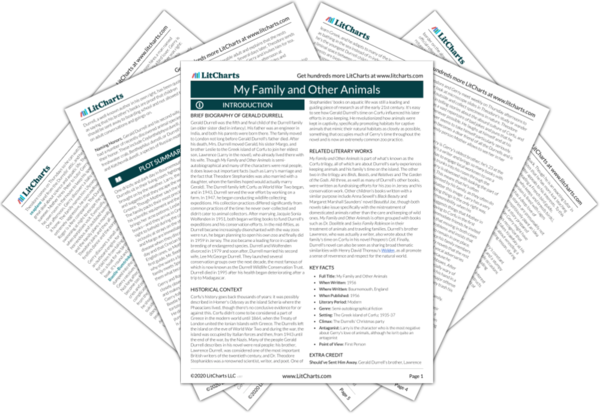For Michael, the natural world is actually very dangerous. In this case, the fact that he has to actively avoid horses, cats, and lilacs actually reinforces that humans are very much at the mercy of the natural world and must learn to exist within it rather than tame it. In this way, though he engages with nature in a way that's almost opposite from the way that Gerry does, the two have the same kind of respect for the power of the natural world.
